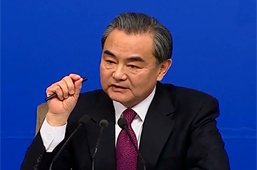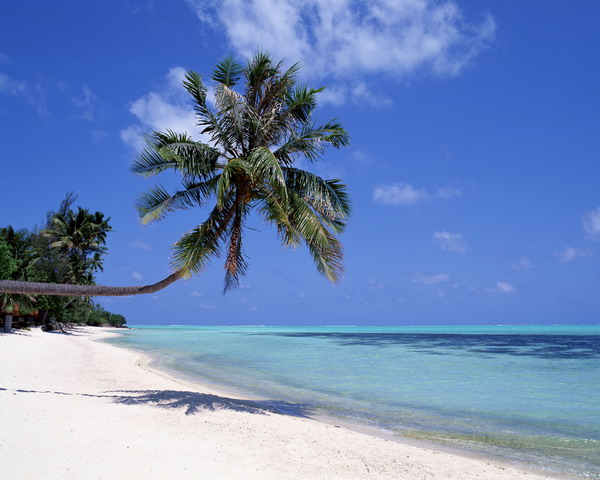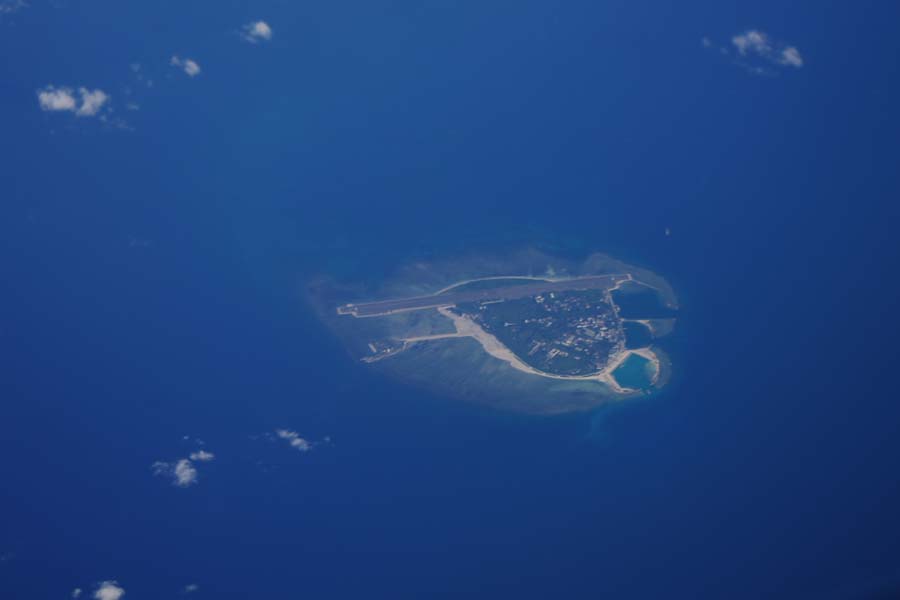To implement the achievements made by President Xi Jinping in his visit to Indonesia in October of 2013, and Premier Li Keqiang in his participation in the 16th China-ASEAN (10+1) Summit, the first China-ASEAN Forum on Maritime Technology Cooperation was held from November 21 to 22, 2013 in Bali, Indonesia. Sponsored by the State Oceanic Administration of China, the Ministry of Maritime Affairs and Fisheries and the Ministry of Foreign Affairs of Indonesia, this forum was organized by the First Institute of Oceanography of SOA, the Maritime Fisheries Research Department and the Department of ASEAN Cooperation of the Ministry of Foreign Affairs of Indonesia, with the Intergovernmental Oceanographic Commission (IOC-UNESCO) Sub-Commission for the Western Pacific (WESTPAC) as the co-organizer. Director General Zhang Zhanhai of the International Cooperation Department of the State Oceanic Administration, the acting Director General Achmad of the Maritime Fisheries Research Department and Budi, president of the Research and Development Center for Coastal and Maritime Resources delivered speeches at the opening ceremony. 79 experts and officials from China, Indonesia, Malaysia, Thailand, Vietnam, Cambodia, the Philippines, Laos, Myanmar, Singapore and Brunei took part in this forum.
Director General Zhang Zhanhai sent in his speech a warm welcome to all the participants, pointing out that the State Oceanic Administration of China had conducted cooperation in various forms with maritime-related departments and institutes in ASEAN member states in recent years. Many achievements have been made in their cooperation, including reaching the consensus among high-level officials about promoting maritime cooperation among relevant counties, establishing a platform for stable maritime cooperation, conducting joint cooperation programs, exploring new areas for cooperation in blue economy. The State Oceanic Administration of China was ready to work with relevant ocean affairs departments of ASEAN member states so as to deepen their cooperation in advancing the cooperation platform and making good use of the China-ASEAN Maritime Cooperation Fund. It also would like to formulate and implement a Ten-Year Plan for China-ASEAN Maritime Cooperation: Knowledge, Service and Innovation. These proposals were well received among the participants.
President Budi extended warm welcome on behalf of the organizer to participants from different countries and wished a big success to the forum. He said that Southeast Asia was located precisely to connect the Pacific, the Indian Ocean, Aadaman Sea and the South China Sea. With the rapid growth of maritime economy, Southeast Asia was faced with various problems, including ecosystem damages, environmental pollution, and coastal degradation, etc. He said that Southeast Aisa shall make joint action plans for maritime observation and monitoring, maritime environmental protection and other fields and to promote the sustainable development of the region through cooperation with the Chinese side. This forum was to focus on issues such as environmental problems, which all Southeast Asian countries care about. As a result, it was conducive to deepening China-ASEAN exchanges and cooperation in maritime affairs and the sharing of maritime technological achievements.
Director General Achmad emphasized that as regional sustainable development and food security was closely related with maritime affairs, ASEAN member states shall strengthen their cooperation with China to build their knowledge of the ocean and promomte maritime sustainable development. He suggested that China and ASEAN member states shall coordinate more in maritime observation and forecasting so as to strengthen the region's capabilities in disaster prevention and mitigation.
Expert had in-depth discussion over the following five topics: ocean and climate change; maritime observation and maritime environmental forecast; maritime environment and biodiversity; maritime environment and climate change records; maritime economy and maritime policies. Consensus has been reached concerning cooperation in Southeast Asia maritime environmental forecast and disaster mitigation, protection of Southeast Asia's endangered maritime animals and ecological system, tackling climate change, and maritime pollution and recovery.
With focuses on maritime technological cooperation, and through full discussion among experts and representatives from different countries, the Forum has included the following achievements in its outcome paper: first, to formulate a Ten-Year Plan for China-ASEAN maritime cooperation, including capability building, service and Innovation, so as to promote exchange of knowledge and policies, strengthen protection of ecological system and sustainable utilization of maritime ecosystem; second, ASEAN member states expect closer cooperation with China in maritime technologies; third, to introduce a cooperation network of research institutes between ASEAN member states and China to facilitate sharing resource sharing and deepen international cooperation; four, to host the second and third China-AESAN Forum on Maritime Technology Cooperation in Thailand and Malaysia respectively.
It has been three years since the functioning of Southeast Asia's Maritime Environment Forecasting System, which was supported by China's wave-tide-circulation theory as well as its core technologies of maritime environment forecasting and high performance parallel algorithm. The system was applauded by Malaysia, Thailand and Indonesia for its contributions to their forecasting capabilities and personnel building. Vietnam, Myanmar and Cambodia expressed clearly in the forum their desire to be included in the program.
The forum was a great success in facilitating maritime cooperation among maritime-related governmental departments of China and ASEAN member states in terms of exchanges and cooperation in maritime observation and forecasting, maritime disaster prevention and mitigation, maritime biodiversity protection, and tackling climate change. What's more, it was also of great significance to the common development of maritime cause of China and ASEAN member states, as it not only contributed to safeguarding the stability of the South China Sea and its adjacent waters, but also to a closer friendship among scientists of the region.



 Overview
Overview Resources & Environment
Resources & Environment



 QQ 好友
QQ 好友 微信好友
微信好友 易信好友
易信好友 QQ空间
QQ空间 朋友圈
朋友圈 百度空间
百度空间